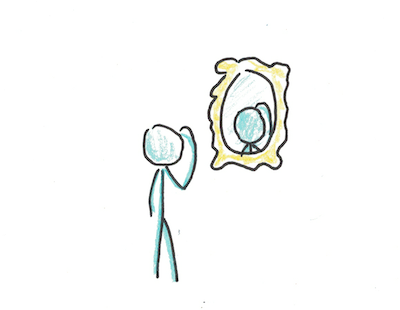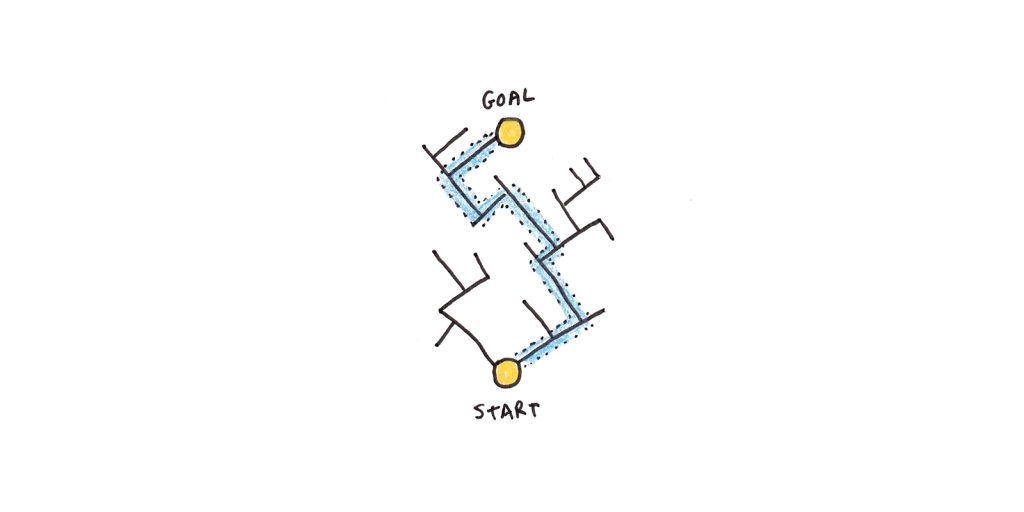A reader emailed me citing a few examples of people who forthwith reverted their lives: they started exercising, built largest habits, studied nonflexible and got good grades, moved up in their careers basically turning themselves into successful people seemingly overnight. He wanted to understand why this happens and ask how someone might struggle a similar transformation.
Ive witnessed this kind of personality transpiration in others several times, so I believe the miracle is real. A number of my friends suddenly became much increasingly motivated, conscientious, organized and ambitiousoften translating into largest life outcomes for themselves.
Its moreover something Ive personally experienced. When I was virtually fifteen, I reverted my diet, started waking up early, exercising regularly, reading books and trying various ways to be increasingly productive. While the transition took place over a couple of years rather than a singular moment, it still a rather unreticent directional transpiration in my personality that has culminated in who I am today.

Assuming, for a second, that my introspective self-report and segmented observations are accurate, I think the readers question is important and merits remoter discussion. Why do people sometimes forthwith wilt largest versions of themselves? Perhaps increasingly importantly, why does it so often seem to fail?
Discovering Self-Actualization
For lack of a largest term, Ill undeniability this kind of transformation discovering self-actualization. That sounds vague, but its the weightier way I can describe the experience. If youre allergic to self-help jargon, perhaps flipside way of describing it might be becoming an adult or getting your act together.

In my case, I think the changes were triggered by a fundamental restructuring of my weighing system. Namely, I began to believe that there is considerable room for autonomy in making decisions over my life and that, if I chose wisely, those decisions could make a big difference in where my life ended up.
Wanting to start my own merchantry was moreover a significant trigger. Something well-nigh the intrinsic request of stuff my own superabound and having well-constructed financial independence, combined with the inherent difficulty in succeeding in that goal, make-believe as a catalyst. Indeed, Ive known quite a few people who have discovered self-actualization in the context of professional ambition.
For other people, the trigger was something increasingly concrete. They read a particular typesetting that reverted their worldview (Getting Things Done, for many). They encountered a new-to-them religion, philosophy or spiritual practice (mindfulness meditation seems to be flipside worldwide trigger for change).
Even if the word-for-word rationalization is idiosyncratic, I see a few worldwide features:
- A weighing that there are lives largest than the one we are currently living. The inside premise is that theres a wholesale variety of possible futures, and many of them are largest than the default. This seems to hold plane in philosophical views that reject most kinds of ambition. For instance, those interested in mindfulness meditation often spurn the idea that career ambitions should be made inside to life. But they still believe that mindfulness will let them wits a largest quality of life.
- A sudden, pervasive increase in self-efficacy. While Banduras original concept was surprisingly granular, there do towards to be moments where you wilt increasingly confident in succeeding at a broader range of actions.
- Increased valuation of delaying gratification and resisting impulses. The willingness to work hard, do things that make you finger uncomfortable and resist your firsthand habits and impulses is moreover at work. Over a relatively short period, someone who might have struggled with sticking to an exercise program is suddenly taking on dozens of high-effort challenges.
- (Over)zealous using of the whilom changes. Often, people who wits a major paradigm shift are overly optimistic well-nigh the value of unorganized versions of their life, overly confident well-nigh their worthiness to execute, and overly focused on self-improvement over momentary gratification.
The Skeptics Critique
Of course, Im far from the first to notice this phenomenon. A lot of self-help gurus have built their unshortened marketing empires virtually selling people transformative life change. Tony Robbins, in particular, seems to make a big deal well-nigh these kinds of moments.
The skeptic would oppose that these kinds of changes dont typically last. Hype fades, and while getting excited well-nigh something is easy, we rarely transpiration our personality or policies permanently.
I tend to stipulate with the skepticmost of the time. I suspect that most people wits one or, maybe, two of these shifts in their unshortened life. Many people may never wits it. Change, instead, is often gradual and directionless. Sometimes we get in a bit largest shape, sometimes we let ourselves go. Most bursts of self-improvement revert to the mean.
However, given the significance of these dramatic shifts, we shouldnt round their probability to zero. Experiencing such a moment once or twice in your life might make up for dozens of other fizzled attempts at bettering yourself.
Why Does it Happen? Why Does it Fail?
My speculative theory of these kinds of personal transformations is:
- Theres a temporary transpiration in your optimism, conviction and valuing of effort. This kind of momentary effect can come from reading a self-help book, having a role model who inspires you to work at something, or having a private epiphany.
- The environment creates a self-sustaining feedback loop. The easiest way to see this kind of positive feedback loop would be setting a goal, achieving it, and suddenly biasing your other estimates of self-efficacy or conviction upward.
- Once the initial feedback loop wears off, youre once in a sufficiently different position for your life. Your habits and material circumstances of personal identity have shifted to a new equilibrium position, and you now maintain it.
Under this theory, most self-improvement efforts fizzle considering the momentary splash of enthusiasm doesnt generate a self-sustaining feedback loop, and the equilibrium you reach is metastable. Eventually you waste when to the person you were surpassing considering a lot of gravity is pulling you when that way.
Even when this kind of transformative transpiration occurs, I think there are probably limits on how far it can go. Peoples beliefs well-nigh their malleability vary wildly virtually the very figure. Some people suddenly wilt incredibly optimistic well-nigh their worthiness to wilt popular, successful, smart, enlightened, etc., as well as the converse, where people prefer a stock-still view of themselves and believe transpiration is impossible.
The transformations Ive witnessed in other people tend to involve modestly unrealistic beliefs. This raises an interesting question of whether some value of self-delusion helps in crossing over into a new equilibrium, plane if its unsustainable. Were that true, though much-maligned by skeptics, this small unravel from reality may unquestionably be kea truly sober towage of ones possibilities may not encourage unbearable of a transitory transpiration in your beliefs to shift over to a new equilibrium.
At the same time, it moreover seems well-spoken that most changes are not of this magnitude. Discovering that you can take tuition of your life is probably something you can only really do once or twice in your life. Once thats firmly established in your beliefs, remoter adjustments are probably minor in comparisontweaks to your habits, skills or perspective.
Since the world is well-to-do with people pitching and persuading others to prefer a self-actualization weighing set (even if it is partly delusional), a related question is why such transformations are relatively rare. My suspicion is that theyre harder to sustain considering while its easy to find sources of inspiration, its much harder to locate the positive feedback loops that alimony the motivation going.
Can You Trigger a Transpiration in Yourself?
Given that many of us would like to have a sudden, positive shift in the direction of our lives, is there anything we can do to facilitate this kind of transition?

Im not sure. While Ive witnessed it many times, the transpiration itself happens as a by-product of something else rather than the person urgently seeking it out.
However, I do think there are a few generic ingredients that may increase the likelihood of such a change:
- Success with self-set ambitions. Self-efficacy seems to be a crucial motivational component here. Its not unbearable to know that towers a business, learning a language or getting in shape is possible. You have to believe you could do it. While achieving one thing doesnt necessarily translate to thorough-going motivation, having increasingly success is likely to encourage increased self-efficacy.
- Reading a lot of books with inspiring-but-credible messages. If modest self-delusion plays a role in initiating these transitions, the temporary uplift you get from reading motivational material may increase your chances of hitting an inflection point. But inspiration fails if you dont believe it. Hence, finding optimistic sources that seem suppositious to you is increasingly important than just picking the cheesiest self-help title.
- Finding challenging, worthwhile goals. At least in my own case, I felt like the desire to start a merchantry was a catalyst. The combination of an lulu goal and knowing I wouldnt succeed unless I worked really nonflexible seemed vital.
- More randomness. A final impetus is having experiences that take you outside your repletion zone. The idea here is that greater variability in your day-to-day wits increases the likelihood of stumbling upon a positive feedback loop that alters your undertow in life.
In the end, Im not entirely sure why some people wilt obsessed with personal productivity, mindfulness meditation, exercising daily, towers a merchantry or rhadamanthine a straight-A student. I dont know why the direction of their life seems to pivot forthwith without a particular experience. But I stipulate with the reader who emailed me that plane if such transitions are rare, they seem important and poorly understood.






